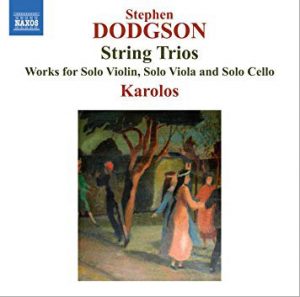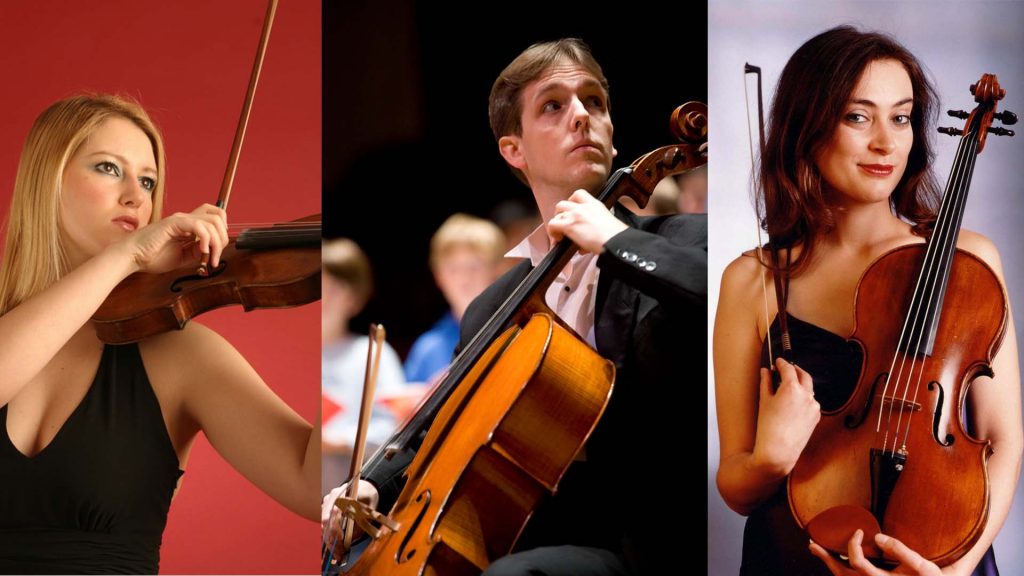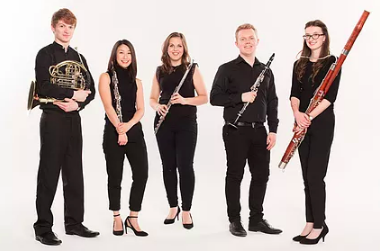 STEPHEN DODGSON
STEPHEN DODGSON
String Trios
Harriet Mackenzieviolin
Sarah-Jane Bradley viola
Graham Walker cello
NAXOS 8.573856
Naxos’ invaluable Dodgson series has reached string music composed between 1951 and 1985. The String Trios bookend the programme, valuably and revealingly, showing how he developed from the very definitive expressive components of the 1951 work to the more complex interweaving of themes to be found in the trio of 1964.
This later work is long-breathed and convincingly explores material, ending in a poignant and moving epilogue. That said, the earlier work is strikingly avuncular and athletic, with an expressive near-ten-minute hymnal slow movement that includes repeated syncopations. This, and the nonchalant, almost whimsical end of the work makes it a most listenable piece.
 The Sonatina in B minor, for solo violin (1963) is in the same key as Bach’s Partita No. 1 and that’s probably not a coincidence. The four brief movements manage to pay homage to Bach whilst also retaining Dodgson’s own musical imprint, not least in the clever Allegretto third movement, which manages this act of ambiguity and duality with great skill. Written for solo viola in 1978, Caprice after Puck packs a lot into its 14 minutes. Cast in a favourite Dodgsonian, variation form this ripely characterised piece enshrines melancholic as well as unsettled, even unsettling moments and the appositely named Capriccioso section certainly seems to embody Puck’s more avuncular spirit.
The Sonatina in B minor, for solo violin (1963) is in the same key as Bach’s Partita No. 1 and that’s probably not a coincidence. The four brief movements manage to pay homage to Bach whilst also retaining Dodgson’s own musical imprint, not least in the clever Allegretto third movement, which manages this act of ambiguity and duality with great skill. Written for solo viola in 1978, Caprice after Puck packs a lot into its 14 minutes. Cast in a favourite Dodgsonian, variation form this ripely characterised piece enshrines melancholic as well as unsettled, even unsettling moments and the appositely named Capriccioso section certainly seems to embody Puck’s more avuncular spirit.
In 1985 Dodgson wrote a Partita for solo cello. The eight movements are set as four pairs, a slower movement followed by a faster one, with complex interrelations between the movements. Once again variations feature strongly and, as before, Dodgson’s control of structural integrity in this work is powerful and impressive. It’s not necessarily straightforward to grasp at a single hearing; it’s the kind of piece one needs to work away at.

The chamber ensemble Karolos contains some of Britain’s most distinguished players and Harriet Mackenzie, Sarah-Jane Bradley and Graham Walker show once again how attuned they are to Dodgson’s expressive language.
Jonathan Woolf
British Music Society






